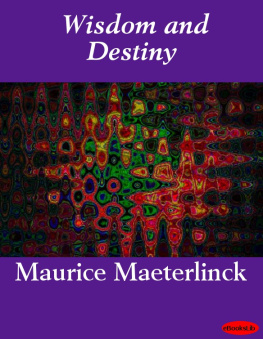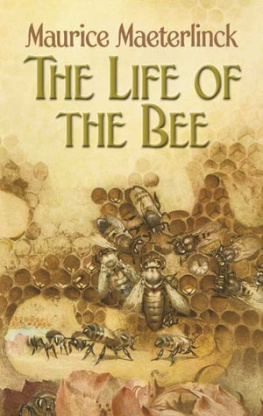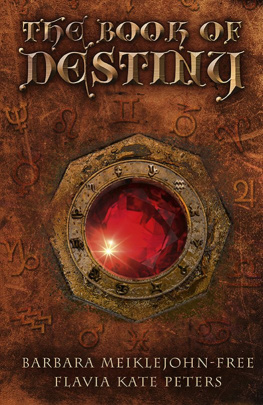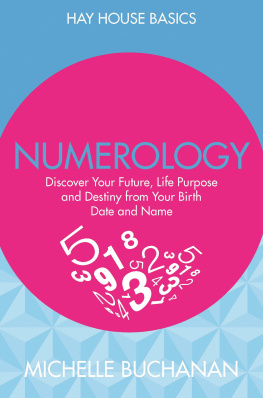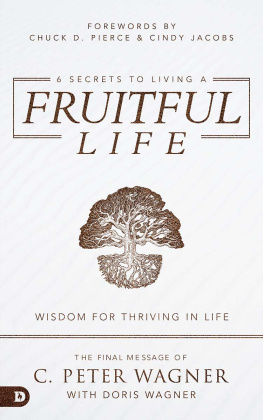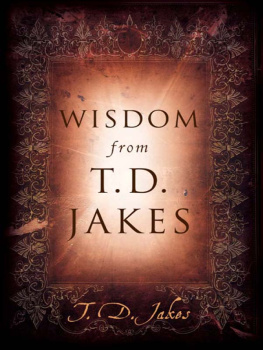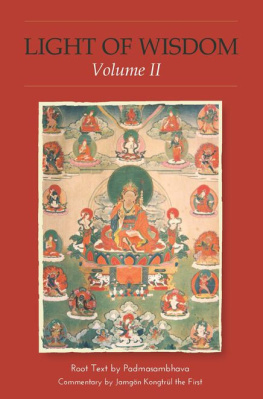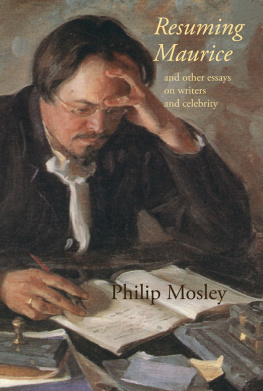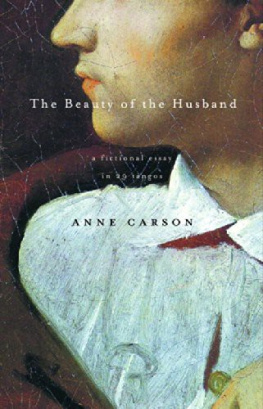You are reading a Deluxe Edition:
It was converted from clean and standard xhtml/xml files.
It uses metatags to identify content, and other data.
The available resources specific to each ebook format were used togive the reader a pleasant reading experience.
More details available at the ebookslib.com website.
Any suggestions that help us improve these editions arewelcome.
The eBooksLib.com team
2011 ebookslib.com
eBook Version
eBooksLib.com
eBooksLib, eBooksLib.com are Registered trademarks owned byeBooksDistrib S.A.R.L (LLC)
___________________
November-2011
ISBN : 978-1-4121-6692-8
W ISDOM ANDDESTINY
By MAURICE MAETERLINCK
Translated by ALFRED SUTRO
TO GEORGETTE LEBLANC OFFER THIS BOOK, WHEREIN HERTHOUGHT BLENDS WITH MINE

INTRODUCTION
T his essay onWisdom and Destiny was to have been a thing of some twenty pages,the work of a fortnight; but the idea took root, others flocked toit, and the volume has occupied M. Maeterlinck continuously formore than two years. It has much essential kinship with the"Treasure of the Humble," though it differs therefrom in treatment;for whereas the earlier work might perhaps be described as theeager speculation of a poet athirst for beauty, we have here ratherthe endeavour of an earnest thinker to discover the abode of truth.And if the result of his thought be that truth and happiness areone, this was by no means the object wherewith he set forth. Herehe is no longer content with exquisite visions, alluring orhaunting images; he probes into the soul of man and lays bare allhis joys and his sorrows. It is as though he had forsaken thecanals he loves so well - the green, calm, motionless canals thatfaithfully mirror the silent trees and moss-covered roofs - and hadadventured boldly, unhesitatingly, on the broad river of life.
He describes this book himself, in a kind ofintroduction that is almost an apology, as "a few interruptedthoughts that entwine themselves, with more or less system, aroundtwo or three subjects." He declares that there is nothing itundertakes to prove; that there are none whose mission it is toconvince. And so true is this, so absolutely honest and sincere isthe writer, that he does not shrink from attacking, qualifying,modifying, his own propositions; from advancing, and insisting on,every objection that flits across his brain; and if suchproposition survive the onslaught of its adversaries, it is onlybecause, in the deepest of him, he holds it for absolute truth. Forthis book is indeed a confession, a naive, outspoken, unflinchingdescription of all that passes in his mind; and even those who likenot his theories still must admit that this mind is strangelybeautiful.
There have been many columns filled - and doubtlesswill be again - with ingenious and scholarly attempts to place adefinitive label on M. Maeterlinck, and his talent; to trace histhoughts to their origin, clearly denoting the authors by whom hehas been influenced; in a measure to predict his future, andaccurately to establish the place that he fills in the hierarchy ofgenius. With all this I feel that I have no concern. Suchspeculations doubtless have their use and serve their purpose. Ishall be content if I can impress upon those who may read theselines, that in this book the man is himself, of untrammelledthought; a man possessed of the rare faculty of seeing beauty inall things, and, above all, in truth; of the still rarer faculty ofloving all things, and, above all, life.
Nor is this merely a vague and, at bottom, a more orless meaningless statement. For, indeed, considering this essayonly, that deals with wisdom and destiny, at the root of it - itsfundamental principle, its guiding, inspiring thought - is love."Nothing is contemptible in this world save only scorn," he says;and for the humble, the foolish, nay, even the wicked, he has thesame love, almost the same admiration, as for the sage, the saint,or the hero. Everything that exists fills him with wonder, becauseof its existence, and of the mysterious force that is in it; and tohim love and wisdom are one, "joining hands in a circle of light."For the wisdom that holds aloof from mankind, that deems itself athing apart, select, superior, he has scant sympathy - it has"wandered too far from the watchfires of the tribe." But the wisdomthat is human, that feeds constantly on the desires, the feelings,the hopes and the fears of man, must needs have love ever by itsside; and these two, marching together, must inevitably findthemselves, sooner or later, on the ways that lead to goodness."There comes a moment in life," he says, "when moral beauty seemsmore urgent, more penetrating, than intellectual beauty; when allthat the mind has treasured must be bathed in the greatness ofsoul, lest it perish in the sandy desert, forlorn as the river thatseeks in vain for the sea." But for unnecessary self-sacrifice,renouncement, abandonment of earthly joys, and all such "parasiticvirtues," he has no commendation or approval; feeling that man wascreated to be happy, and that he is not wise who voluntarilydiscards a happiness to-day for fear lest it be taken from him onthe morrow. "Let us wait till the hour of sacrifice sounds - tillthen, each man to his work. The hour will sound at last - let usnot waste our time in seeking it on the dial of life."
In this book, morality, conduct, life are Surveyedfrom every point of the compass, but from an eminence always.Austerity holds no place in his philosophy; he finds room even "forthe hours that babble aloud in their wantonness." But all those whofollow him are led by smiling wisdom to the heights where happinesssits enthroned between goodness and love, where virtue rewardsitself in the "silence that is the walled garden of itshappiness."
It is strange to turn from this essay to SerresChaudes and La Princesse Maleine, M. Maeterlinck's earliest efforts- the one a collection of vague images woven into poetical form,charming, dreamy, and almost meaningless; the other a youthful andvery remarkable effort at imitation. In the plays that followed thePrincesse Maleine there was the same curious, wandering sense of,and search for, a vague and mystic beauty: "That fair beauty whichno eye can see, Of that sweet music which no ear can measure." In alittle poem of his, Et s'il revenait, the last words of a dyinggirl, forsaken by her lover, who is asked by her sister what shallbe told to the faithless one, should he ever seek to know of herlast hours:
"Et s'il m'interroge encore Sur la derniere heure?
Dites lui que j'ai souri De peur qu'il ne pleure..."
touch, perhaps, the very high-water mark ofexquisite simplicity and tenderness blent with matchless beauty ofexpression. Pelleas et Melisande was the culminating point of this,his first, period - a simple, pathetic love-story of boy and girl -love that was pure and almost passionless. It was followed by threelittle plays - "for marionettes," he describes them on thetitle-page; among them being La Mort de Tintagiles, the play hehimself prefers of all that he has written. And then came a curiouschange: he wrote Aglavaine et Selysette. The setting is familiar tous; the sea-shore, the ruined tower, the seat by the well; no lessthan the old grandmother and little Yssaline. But Aglavaine herselfis strange: this woman who has lived and suffered; this queenly,majestic creature, calmly conscious of her beauty and her power;she whose overpowering, overwhelming love is yet deliberate andthoughtful. The complexities of real life are vaguely hinted athere: instead of Golaud, the mediaeval, tyrannous husband, we haveSelysette, the meek, self-sacrificing wife; instead of theinstinctive, unconscious love of Pelleas and Melisande, we havegreat burning passion. But this play, too, was only astepping-stone - a link between the old method and the new that isto follow. For there will probably be no more plays like Pelleas etMelisande, or even like Aglavaine et Selysette. Real men and women,real problems and disturbance of life - it is these that absorb himnow. His next play will doubtless deal with a psychology moreactual, in an atmosphere less romantic; and the old familiar sceneof wood, and garden, and palace corridor will be exchanged for thehabitual abode of men.

